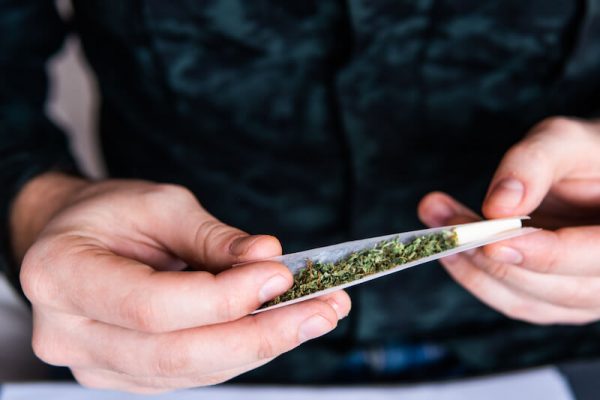Navigating the complexities of marijuana possession charges in Chicago requires skill and deep knowledge of the legal landscape. As experienced Chicago Marijuana Possession Defense Lawyers, we understand the intricacies of Illinois Law surrounding cannabis possession. Our primary aim is to protect your rights and achieve the best possible outcome for your case.
Facing marijuana possession charges can be daunting, but you’re not alone. We specialize in crafting robust defense strategies tailored to your specific circumstances. Leveraging our expertise as criminal defense attorneys, we stand ready to advocate fiercely on your behalf.
Understanding the nuances of cannabis possession laws is crucial for a strong defense. Our team is committed to staying at the forefront of evolving legal standards and providing you with unparalleled representation. Trust us to guide you through this challenging process with professionalism and dedication. Learn more about Chicago Marijuana Possession Defense Lawyers
Understanding Marijuana Possession Charges in Illinois
In Illinois, marijuana possession charges are governed by various laws and regulations that define penalties based on the nature and quantity of cannabis involved. The distinctions between personal use and intent to distribute, along with the legal framework for medical marijuana, play crucial roles in shaping these charges.
Overview of Cannabis Laws and Penalties
The Cannabis Regulation and Tax Act legalizes recreational marijuana use for adults, setting specific limits on possession. An individual may possess up to 30 grams of cannabis flower or 5 grams of cannabis concentrate legally. Violating these limits can lead to drug possession charges.
Possession exceeding legal amounts often results in misdemeanor or felony charges, depending on the quantity. For example, possessing over 100 grams may lead to a Class 4 felony charge. Penalties range from fines to imprisonment, with the severity escalating with larger quantities.
Distinctions in Possession: Personal Use vs. Intent to Distribute
Personal use involves smaller amounts intended for individual’s consumption, whereas possession with intent to distribute covers larger quantities. Distinguishing between these can determine whether one faces more serious charges.
Possession with intent to distribute is viewed as a more severe offense. For instance, possessing over 500 grams might lead to a Class 3 felony charge, with penalties escalating to a Class 1 felony for even larger amounts. Law enforcement often considers factors like packaging, paraphernalia, and the presence of large sums of money.

Medical Marijuana and the Law
The Compassionate Use of Medical Cannabis Program Act regulates medical marijuana use. Qualified patients may possess up to 2.5 ounces of cannabis during a two-week period, provided they have a valid medical card.
Medical marijuana use provides protection from standard possession charges, but legal limits still apply. Any possession beyond prescribed amounts could lead to penalties akin to those for recreational users, impacting one’s legal standing similarly to non-medical cannabis possession offenses.
Recognizing these laws and their implications is crucial for those navigating marijuana possession charges in Illinois. Understanding these distinctions helps in choosing the right defense strategy when faced with legal issues related to cannabis offenses.
Defense Strategies and Legal Representation
Understanding the intricacies of marijuana possession cases is crucial when facing legal challenges. Exploring effective defense strategies and ensuring qualified legal representation can make a significant difference in the outcome of these cases.
Protecting Your Constitutional Rights
It’s essential to focus on protecting constitutional rights, particularly the Fourth Amendment, which shields against unreasonable searches and seizures. Our defense strategy often involves scrutinizing the validity of the search and seizure process.
Illegal Searches: If evidence was obtained without proper warrants or probable cause, we aim to have it excluded.
Attorneys also evaluate if the arresting officers adhered to legal protocols. Keeping the police accountable for any misconduct helps safeguard your rights and strengthens your case.
Navigating the Legal System
Successfully navigating the legal system demands a thorough understanding of Illinois cannabis laws and local rules in Cook, DuPage, and Lake Counties. Our role is to assist clients through complex legal processes.
Misdemeanor and Felony Charges: Defense strategies differ based on whether you’re facing misdemeanor or felony charges, including marijuana distribution or possession beyond legal limits.
Pre-trial motions, 402 conferences, and plea negotiations can influence the direction of a case. Leveraging deferred prosecution programs might provide favorable outcomes, especially for first-time offenders.
The Importance of Experienced Legal Counsel
Having seasoned legal counsel is vital for effectively defending against marijuana-related charges. Our experience in drug-related cases allows us to offer tailored strategies that address the nuances of each case.
Legal representation from a Chicago Marijuana Possession Attorney, or a Criminal Defense Lawyer, ensures clients have support in pre-trial motion hearings and other critical proceedings. This experienced guidance can review plea offers or negotiate favorable terms.
Moreover, protecting our clients’ employment opportunities and minimizing the impact on their criminal record is a priority throughout the defense process. We aim to provide a free initial consultation to discuss case specifics and explore potential defense strategies.

